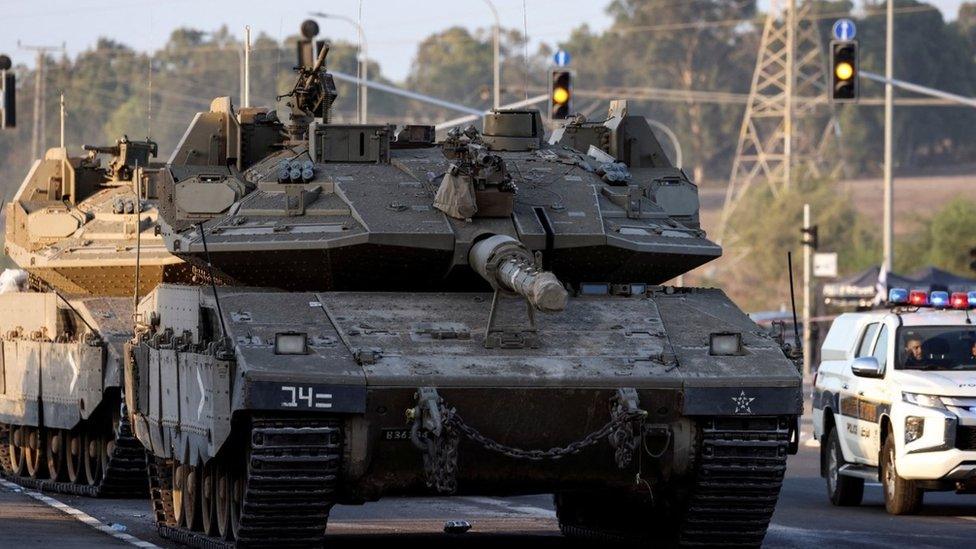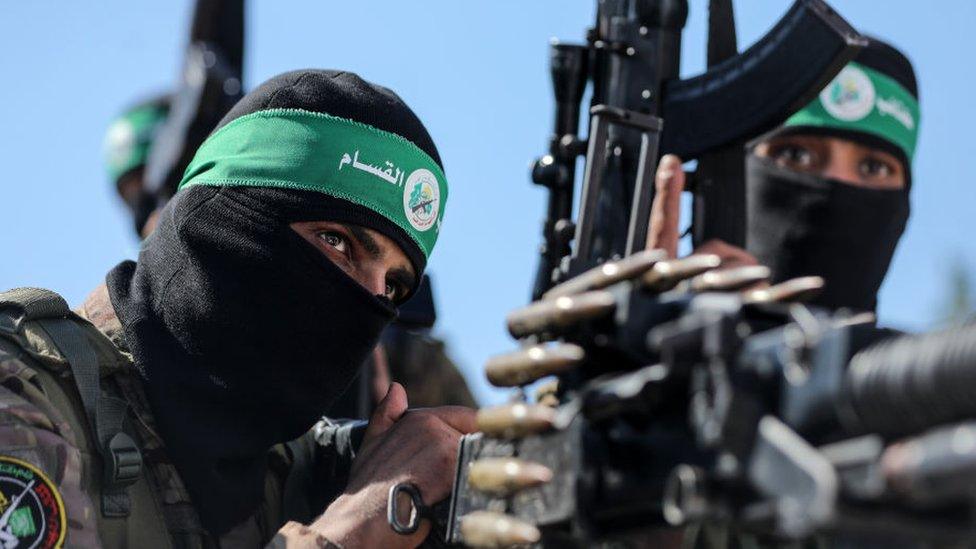Israel-Hamas war: 'Hide religion,' Welsh Jewish student told
- Published
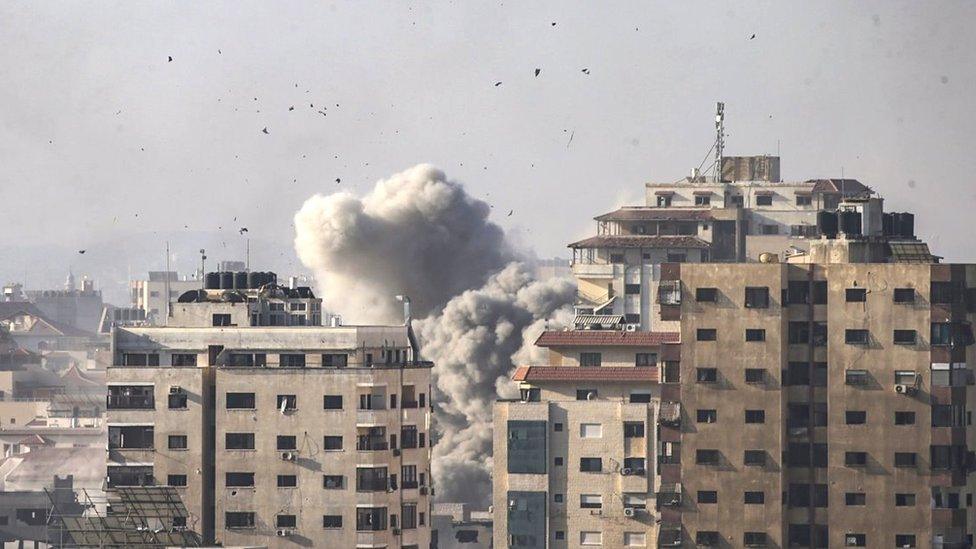
Israeli air strikes have continued across the Gaza Strip
A Jewish university student says they have been told not to show outright signs of their religion amid the war between Israel and Hamas in Gaza.
The 20-year-old from Cardiff University, who wishes to remain anonymous, said she felt scared about becoming a target of abuse.
Meanwhile, a Welsh-Palestinian woman said she felt "dehumanised" by language used.
Thousands of people have died since the start of the conflict.
Palestinian officials say more than 4,300 people have been killed in Gaza since Hamas attacked Israel on 7 October, killing 1,400 and taking an estimated 200 hostages.
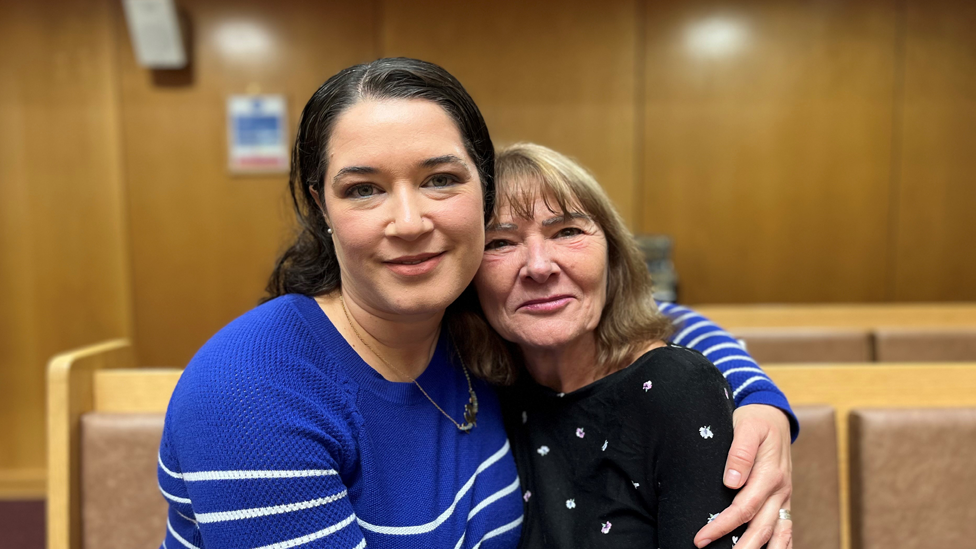
Israeli-born Moran and Tova, from Cardiff, say the Jewish community has felt let down by the Welsh government since Hamas's attack
The student said a lot of people had stopped wearing their kippahs out as they did not want to become targets.
She said a friend had been "terrified to go back to campus" over fears of how people would react.
During a recent conference call, the Union of Jewish Students advised those who were worried about becoming targets to hide signs of their Jewish faith.
Cardiff University said there was support available and it had a zero-tolerance approach to racism, anti-Semitism and Islamophobia.
Meanwhile, Alaa Khundakji, 36, a Welsh-Palestinian from Cardiff whose family were displaced to south Gaza due to bombing, said the atmosphere in the UK had made things worse.
"There is such great fear and anger and disappointment in the way it's portrayed, in the way as a community we're dehumanised," she said.
She added that Palestinian families had told her of children coming home from school "distressed."
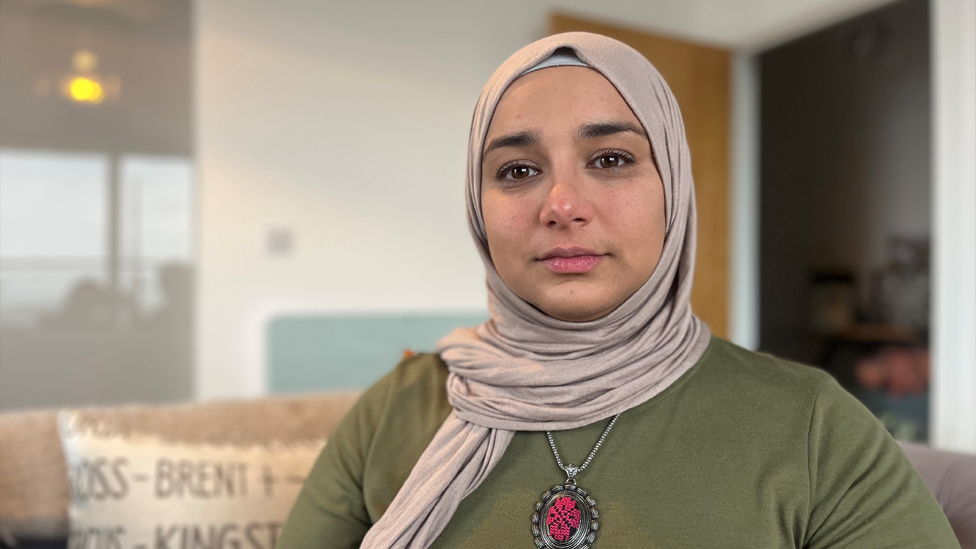
"There is such great fear and anger and disappointment in the way it's portrayed, in the way as a community we're dehumanised," says Alaa Khundakji, a Welsh-Palestinian
She said Palestinian people in the UK were feeling "marginalised and alienated".
Israeli-born Moran and Tova, from Cardiff, said Israel was meant to be "a safe haven" for Jewish people and the community had felt let down by the Welsh government since Hamas's attack.
She said: "We had a meeting here, we had a representative of the British government but not Wales."
Both women said they felt unsafe and claimed a friend had been verbally abused while placing an Israeli flag on the steps of the Senedd.
They said another friend had tried to join but turned back upon seeing a pro-Palestine march in Cardiff.
Moran said: "We are keeping a low profile at the moment."
She said she would not allow Hamas to "let us live in fear, they will not win and we will walk with our heads up and proud".
Tova added: "We don't normally want to be anonymous, we are proud Israelis, and it's painful."
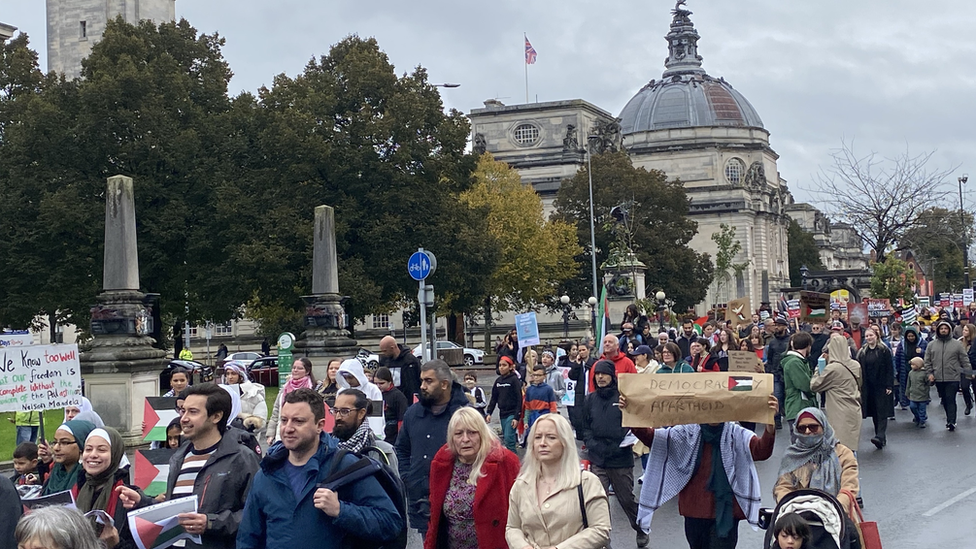
About 1,000 protesters waving Palestinian flags and supportive placards took part in a march towards the Welsh Parliament in Cardiff on Saturday
Three of Wales' police forces said they had not seen a notable increase in reported hate crime, but Supt Tim Morgan of South Wales Police said the service was "actively reaching out" to offer support.
The Muslim Council of Wales' secretary general Dr Abdul-Azim Ahmed said it was reassuring that Welsh police had not seen a rise in hate crime, but many Muslims were "hurting" and "afraid."
"People are concerned about the impact of campaigning for Palestine. They're concerned as well about the reception and sentiment others hold.
"It's such a polarised time, especially some of the rhetoric coming from authorities."
The Welsh government said: "The first minister has strongly condemned the appalling attacks carried out by Hamas and the horrific escalation in violence against Israel."
"The minister for social justice has reached out to faith leaders in Wales to express her shock and condolences and is in touch with Faith Communities Forum to arrange a meeting with representatives from the Jewish community as soon as possible."
When asked about Prime Minister Rishi Sunak's language around Palestinians, the UK government pointed to his statement in the Commons earlier this week when he said: "We mourn the loss of every innocent life, of the civilians of every faith and every nationality who have been killed, so let us say it plainly: we stand with British Muslim communities, too."
He said the UK government was providing an extra £10m of aid to Palestinians, saying Palestinian people were "victims of Hamas too".
- Published22 October 2023
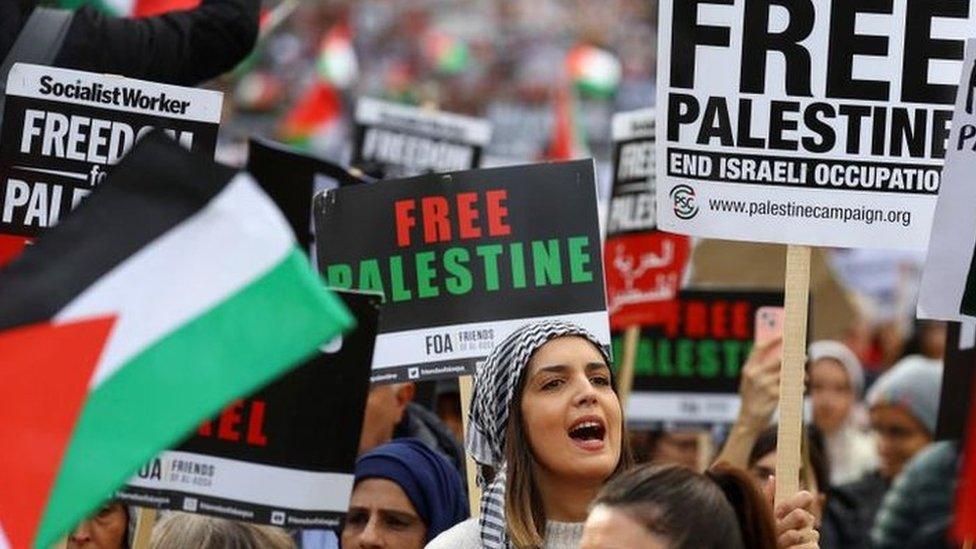
- Published21 October 2023
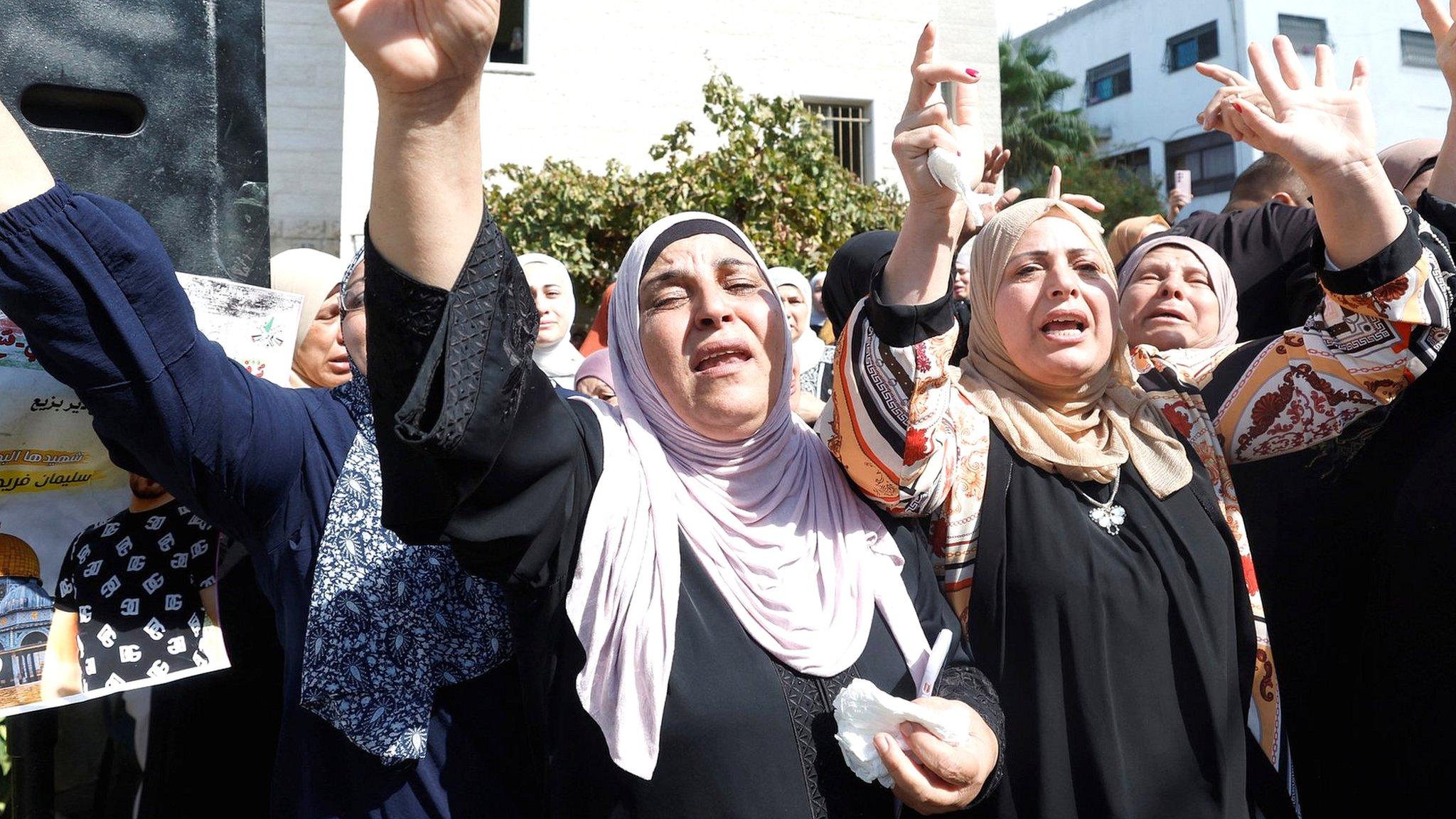
- Published20 October 2023
